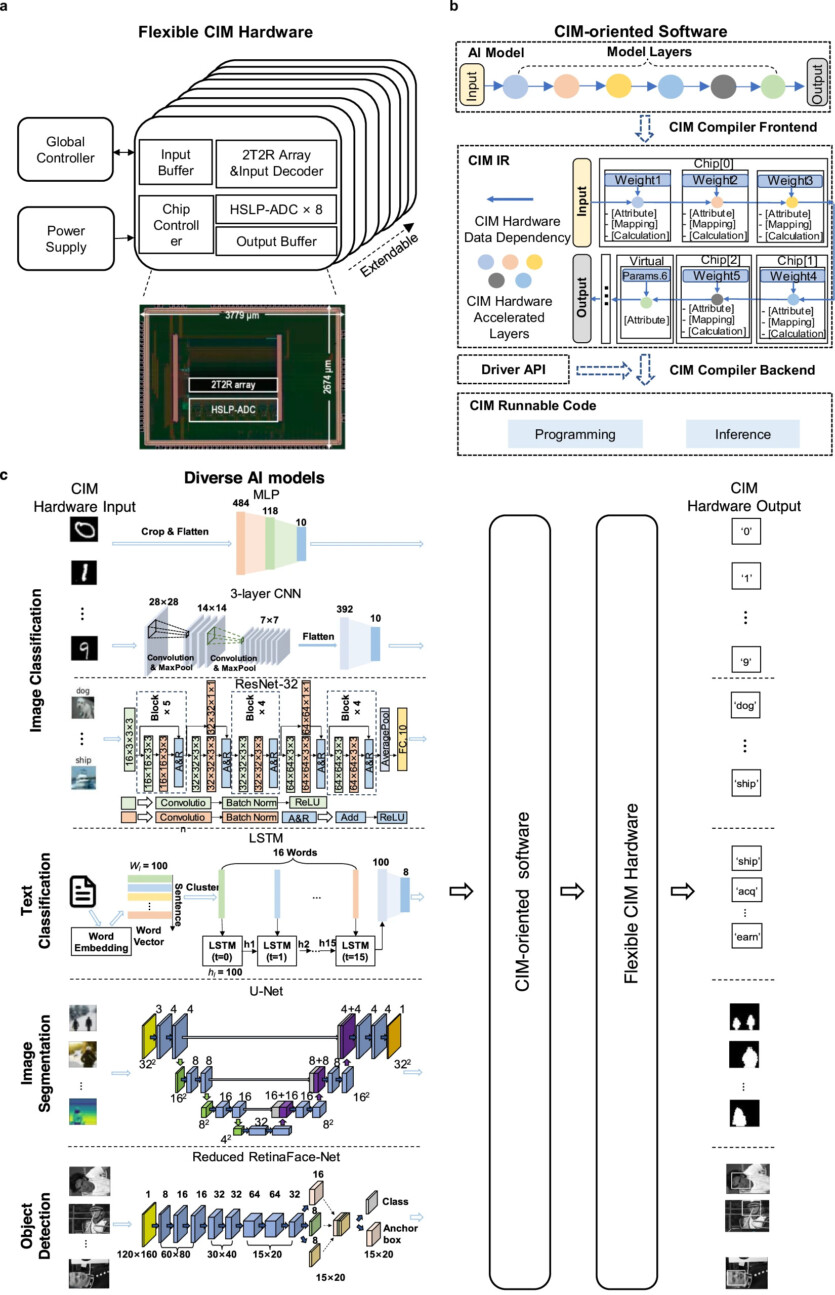
Chinese researchers present new technology for data processing and sorting AI systems using memristors.
Memristors are electronic elements that can change their resistance depending on the electric charges that flow through them. They are able to mimic the functions of processing and storing information in a similar way to the human brain.
Chinese scientists have combined the use of memristors with an advanced data sorting algorithm to process large amounts of information more efficiently. According to them, this approach can help overcome performance limitations not only in computing, but also in artificial intelligence systems and equipment design.
In addition to AI, potential applications using this technology include intelligent transportation systems that analyze images in real time and financial services that require rapid risk assessment. The research team created a prototype of hardware sorting based on memristors. According to the test results, this prototype successfully coped with such tasks as route planning, providing higher productivity and lower energy consumption compared to traditional sorting methods.

It is noted that in general, the system demonstrated a 7.7-fold increase in throughput and 160-fold better energy efficiency. In addition, the efficiency of memory usage increased by 32 times. The researchers also explain that information sorting remains a key factor limiting the performance of many applications, from AI to databases, internet search, and scientific computing.
Traditional computing systems are based on the von Neumann architecture, which separates data storage and processing functions, usually using a central processing unit to perform computations. The Chinese researchers point out that the von Neumann architecture has a significant drawback that limits the speed of data transfer between memory and processors. They emphasize that while a system using memristors can help overcome these limitations, current systems still depend on comparison operations, which limits sorting performance.
Unlike conventional resistors, which simply reduce the flow of electricity in a circuit, memristors have the unique ability to remember how much electric charge has passed through them. This memory function allows the membranes to adjust their resistance based on previous activity, allowing them to act as both storage and processing components.
By combining these functions, memristors can eliminate the need to transfer data between separate memory and processing units, potentially leading to faster and more energy-efficient computing systems. Traditional hardware sorting relies on central processing units, graphics processors, or specialized chips that compare numbers step by step using sorting algorithms. Instead, the new method uses memristors to perform iterative sorting search-based, finding the minimum or maximum values without directly comparing each pair, which in turn saves time and energy.
The results of the study were published in the journal Nature Electronics
Source: Interesting Engineering

Spelling error report
The following text will be sent to our editors: